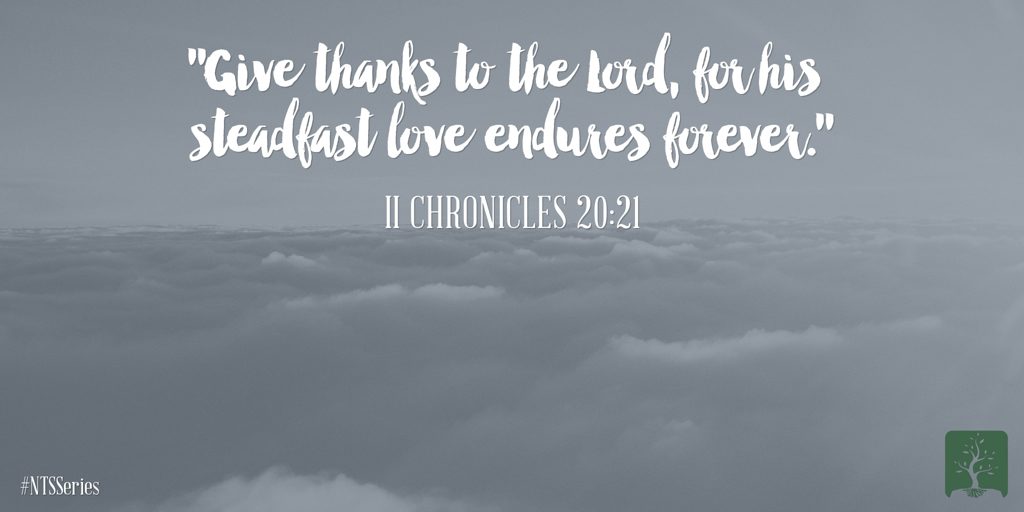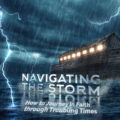“Give thanks in all circumstances.” So declares the apostle Paul in I Thessalonians 5:18. But how can we be thankful if our circumstances look bad? One of the most dramatic Biblical stories on that theme is in II Chronicles 20. The people of Judah, facing a massive foreign invasion, were in the worst of circumstances.
How can we be thankful if our circumstances look bad? Share on XYet even before any resolution of their crisis was at hand, they joined together in singing, “Give thanks to the Lord, for His steadfast love endures forever.” (II Chronicles 20:21) How could they have such a hopeful and thankful spirit?
- They looked beyond their trials to God. Faced with disaster, Jehoshaphat (the king of Judah) prayed, “We do not know what we should do, but our eyes, O Lord, are upon You.” [II Chronicles 20:12] When we cannot see any solution, Jehoshaphat’s prayer calls us to fix our vision upon God.
- They trusted that God was with them and that God would bring them through the storm. They heard the word of the prophet Jahaziel: “Fear not, do not be dismayed, for the battle is not yours but God’s.” (II Chronicles 20:15) When we trust in God, we need not fear.
- They moved toward their problem in faith. One of the most remarkable aspects of the story is that the people of Judah moved forward into open ground towards the invading army, singing praises to God. It is a model for life today—that rather than retreating before challenges, we can move forward in faith, trusting that God will be at work around us and through us.
In the end, God brought about deliverance for the people of Judah. But what is especially inspirational about the story is that the people were giving thanks to God even before they saw that deliverance. They were thankful, not just for blessings received, but for blessings promised. Likewise today we can be thankful in all circumstances when we lift our vision to God and trust in God’s goodness and God’s steadfast love.
Sunday’s Scripture Readings:
II Chronicles 20:1–12
II Chronicles 20:13–23, 27


